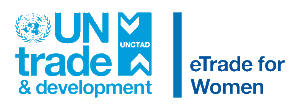
Small and medium-sized enterprises (SMEs) make up over 90% of businesses worldwide, generating more than half of global GDP. Those owning intellectual property (IP) rights, like patents, trademarks and designs, outperform their peers, adding almost 70% more revenue per employee, paying higher salaries and creating more jobs.
For these businesses, IP is not just seen as a legal right but also a key business and financial asset. They demonstrate the fact that when used well IP can be a powerful tool to help SMEs grow, attract investments, form partnerships and expand globally.
And yet, too few SMEs tap this potential. Data shows the number to be at 10% or less around the world. Addressing this imbalance matters because SMEs are the center of economic gravity for many countries and often the most dynamic and disruptive innovators.
Digital transformation adds urgency to this work. WIPO has identified digital and deep tech as forces driving the future of innovation. Of the 3.5 million patent filings made each year, around a third relate to digital technologies.

Practical steps to success
SMEs are active players in these transformations, but to help more SMEs on their IP journey, WIPO offers practical tools across the business lifecycle.
Step one is helping enterprises know their IP. Over 50,000 SMEs have used our free IP Diagnostics tool, available in almost 30 languages, to understand how IP connects to their business and growth strategy.
Step two is protection. Each year, hundreds of thousands of businesses use our global services – the PCT, Madrid and Hague systems – to obtain patents, trademarks and designs internationally. We continue to invest in these services, recently launching a major upgrade of our digital eMadrid platform, enhancing the user experience.
IP enforcement is also important for SMEs. This is especially true in the digital age, where transnational crime networks are finding new ways to copy, counterfeit and free ride off others.
The impact on SMEs can be devastating. In Europe, studies have shown that SMEs hit by IP theft are a third more likely to fail. That’s why we’re also innovating in enforcement.
Building on WIPO Alert—which tracks over 25,000 copyright-infringing websites—we are piloting two new initiatives: WIPO Alert Pay, targeting pirate site financing, and WIPO CRIS, a customs recordation system designed to boost IP enforcement at borders.
Step three is about IP commercialization, which is where the journey to market is completed. We are working with business intermediaries to reach out to SMEs and others innovating on the ground, offering IP Management Clinics and tailored projects that help entrepreneurs incorporate IP into business strategies.
The transformative power of IP

The results are encouraging. Mariama Sarge, a small business owner from the Gambia, had little exposure to IP until hearing about a local WIPO project. Soon, she was one of 50 SME owners receiving tailored IP training and mentorship.
Some participants registered trademarks. Others refined business strategies. Mariama invented a Multifunctional Solar-Powered Cart – a cleaner, greener option for street vendors. With our help, she became the first female inventor to register a utility model in The Gambia. As she told us, “IP unlocks my creativity, mind and opportunities…I want to be part of the innovators of Africa”.
Mariama’s story is one of thousands – but it illustrates how transformative IP can be and why building IP knowledge and skills is so critical. 
Mariama Sarge, a small business owner in the Gambia, received tailored IP training and mentorship.

That’s why we’re also transforming the work of the WIPO Academy, the world’s largest provider of IP education, to help over 125,000 small business owners pick up practical IP skills that become part of their toolkit for business success.
None of this can be achieved in isolation and partnerships are key to these efforts. This includes our work with the International Trade Centre (ITC) and the training, mentoring and technical assistance we co-deliver for women and youth entrepreneurs.
This month’s Global SME Ministerial is a timely opportunity to spotlight the future of small business and the ways in which we can support SMEs to leverage IP and digital transformation to grow and succeed.

